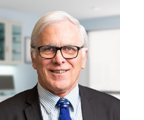Slide 1
Project ECHO Rural Connections
All Teach, All Learn
Bridging the Knowledge Gap in Isolated Communities


Access to resources may be limited in rural, remote, and isolated communities, but delivering high-quality, competency-based home care should always be achievable. Project ECHO: Rural Connections is working toward this goal by hosting expert-led educational sessions and fostering collaboration by connecting local healthcare providers with a broader network of peers and experts. Our Project ECHO brings specialized knowledge—often concentrated in urban centres—to healthcare providers in rural and remote areas, promoting a more equitable distribution of expertise.
2024 Theme:
Chronic wound management in low-resource settings requires special attention. Limited or inconsistent access to clinical specialists and supplies poses unique challenges for rural and isolated communities compared to urban or well-resourced settings. To address this challenge, recognized experts in wound care have collaborated to develop a series of consensus statements. Our 2024 Project ECHO focuses on these practical, scientifically sound guidelines, offering a unified, evidence-based approach to care. This series will focus on addressing the clinical challenges for each wound type with insights to address many of the difficulties experienced in isolated communities.
December 11, 2024, 11:00 – 12:00 pm ET
 Subject Matter Expert:
Subject Matter Expert:
DR. GARY SIBBALD, MD FRCPC (Med, Derm), MACP, FAAD, MEd, FAPWCA
Faculty of Medicine, Department of Medicine, Division of Dermatology, University of Toronto
Head of Project ECHO Ontario Skin and Wound
November 19, 2024
 Subject Matter Expert:
Subject Matter Expert:
DR. MICHAEL STACEY
Vascular Surgeon and lead of the Canadian Consensus Statement on the management of Venous Leg Ulcers.
November 6, 2024
 Subject Matter Expert:
Subject Matter Expert:
DR. GARY SIBBALD, MD FRCPC (Med, Derm), MACP, FAAD, MEd, FAPWCA
Faculty of Medicine, Department of Medicine, Division of Dermatology, University of Toronto
Head of Project ECHO Ontario Skin and Wound.
The Project ECHO Home and Community Care Learning Hub offers a variety of resources for healthcare providers delivering home- and community-based care. Through the hub, you can access:
The Palliative Care ECHO Project is supported by a financial contribution from Health Canada. The views expressed herein do not necessarily represent the views of Health Canada.
This post is also available in: French